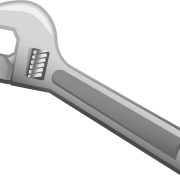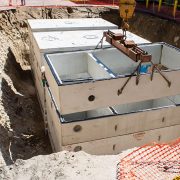Effluent Filters
 When it comes to maintaining a septic system in Massachusetts, there are a number of requirements placed on property owners by the state. However, there are additional measures that can be taken that, while not required by law, can really go a long way toward increasing the efficiency and longevity of your tank. An effluent filter is one of those things that can help your septic system run much more smoothly, improve the filtration process and protect your drainfield from getting plugged up by larger solids.
When it comes to maintaining a septic system in Massachusetts, there are a number of requirements placed on property owners by the state. However, there are additional measures that can be taken that, while not required by law, can really go a long way toward increasing the efficiency and longevity of your tank. An effluent filter is one of those things that can help your septic system run much more smoothly, improve the filtration process and protect your drainfield from getting plugged up by larger solids.
Installation: What to Expect
An effluent filter is installed in the tank, replacing the exit baffle. What this does it to filter all of the wastewater before it leaves the tank, preventing larger solids from getting into the drainfield. Depending on the location of your septic tank and the company that you hire to install it, the installation process shouldn’t take very long. Most newer units are only about a foot below the service and can have as much as a 24-inch opening over the exit baffle, making it simple to install or replace an effluent filter.
Obstacles can occur on older units that must be considered. If the tank is not up on risers and is more than four feet below the surface, it will take more time and cost more to install. If the opening over your existing exit baffle is only four inches across, as is seen in some older units, the installer will have to physically get inside the tank to install the filter. Speak with your septic service representative about your particular unit, its age and location to get a better idea of what to expect prior to installation.
![]()
The Advantages of an Effluent Filter
We already discussed the purpose of installing an effluent filter to aid in maintaining a septic system in Massachusetts, but there are also some distinct advantages to adding this filter to older systems. Even if your system has been properly maintained and is working efficiently, the exit baffle connections will eventually fall off in about 20-30 years and will need to be replace. This happens even with concrete baffles, so no system is one-hundred percent foolproof.
Replacement baffles are made out of PVC pipe and are attached to the pipe that comes into the tank rather than to the tank itself. This is why a replacement exit baffle is more durable than the original ones that were installed on these older units. Because there is no connection to hold the baffle to the septic tank, there’s nothing to corrode and fall off, making it a permanent replacement solution.
The effluent filter works in much the same way. It is made out of PVC and is installed to the pipe that comes into the tank, rather than being connected to the tank itself. If you are told that you need to replace the exit baffle, it is in your best interest to pay the extra money and have them put in an effluent filter instead because it will fix the issue and add extra protection to your drainfield at the same time.
![]()
How Important is an Effluent Filter?
Like with all other septic system issues and maintenance concerns, the importance or urgency of replacing the exit baffle with an effluent filter will be dependent upon the age of your system and your typical daily use. Systems that are over 20 years old should upgrade to an effluent filter as soon as possible to avoid issues associated with failed exit baffles.
Families that have small children should consider making the upgrade to an effluent filter as soon as possible due to the high volume of non-biodegradable items that inevitably get flushed by young ones. When these items make their way to the drainfield they can cause permanent damage.
However, for households where there are just one or two adults and not a lot of company, there is much more control over what is going down the toilets and drains. While an effluent filter is beneficial to each and every home with a septic system, it is not as essential in a home situation like this as it is in a more crowded, varied household.
Call Septic Preservation Services at 877-378-4279 for information about maintaining a septic system in Massachusetts. SPS can provide you with a professional evaluation of your system and let you know if an effluent filter will benefit your system, as well as the costs associated with this upgrade and the urgency that it should be added.
Visit www.septicpreservation.com for more information.













